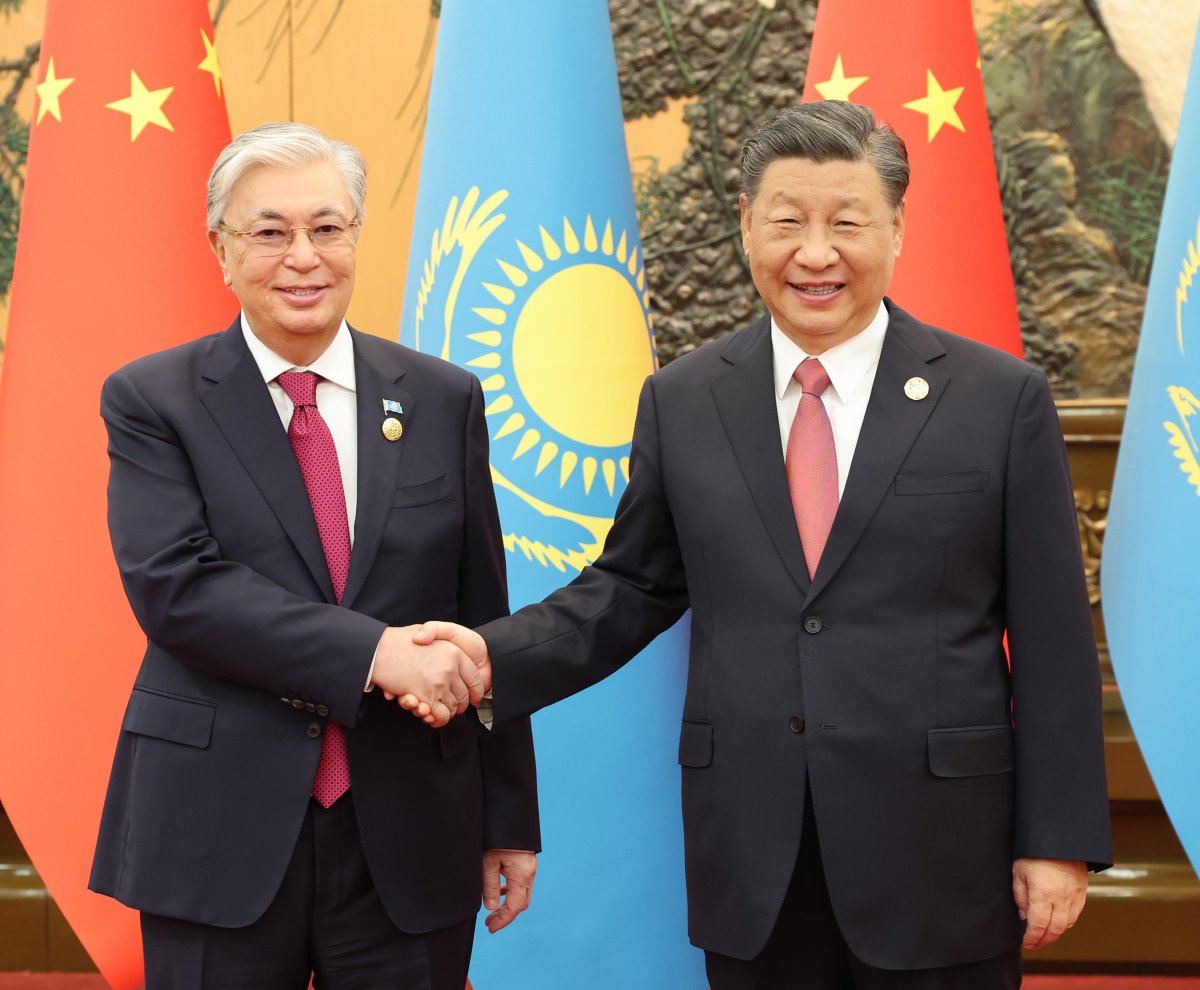Russian saber-rattling against Kazakhstan for failing to back Moscow's war on Ukraine risks angering China and further destabilizing the central Asian region, according to a widely respected international affairs think tank.
Russian commentators' rhetoric against Kazakhstan, traditionally a Moscow ally, has escalated after it upheld the Western sanctions against the Kremlin following President Vladimir Putin's attempted invasion of Ukraine. This has soured the historical alliance as Astana, the capital of Kazakhstan, seeks to balance relations with great powers.
But any move by Russia towards an invasion of Kazakhstan would risk drawing China's ire, an associate fellow at Chatham House, the London-based think tank, told Newsweek. "The bellicose rhetoric has led to the perceived risk of a Russian invasion into Kazakhstan's northern territories," said Kate Mallinson.
"China values its relationship with Kazakhstan – it owns approximately 40 per cent of oil production in the country for starters and is soon to be the largest importer of Kazakh uranium – and does not want to see Russia invade Kazakhstan's northern territories and foment further instability."

Kazakhstan, a former Soviet republic, declared independence in December 1991 following the collapse of the former Soviet Union. It remains a member of the Moscow-led Collective Security Treaty Organization (CSTO) and the Eurasian Economic Union (EEU).
China replaced Russia as Kazakhstan's leading trade partner, with their bilateral trade reaching a new record of $41 billion in 2023, Kazakh President Kassym-Jomart Tokayev told the China-led business forum Boao Forum for Asia (BFA) on March 28, according to the Russian news agency, Interfax.
Newsweek contacted China and Russia's foreign ministries in a written request for comment via email. Newsweek also contacted Kazakhstan's foreign ministry for comment.
Beijing increasingly views Central Asia as part of its backyard, as its political influence in the five former Soviet republics has challenged Moscow's historical footprint in the region.
Kazakhstan's unwillingness to support Moscow's war in Ukraine hasn't been received well by pro-war Russian politicians. Former President and Prime Minister Dmitry Medvedev, in 2022, called Kazakhstan an "artificial state" in a deleted post on the Russian social media platform VKontakte, suggesting that the region was Slavic before the fall of the Soviet Union.
In June 2022, President Tokayev, told the St. Petersburg International Economic Forum, that Astana has no intentions of recognizing the so-called Donetsk and Luhansk People's Republics, created by Putin out of the territories Russia is claiming in the Eastern regions of Ukraine.
Kazakhstan's ambivalent position on the Ukraine war has since turned the pro-war commentators against Astana. Dmitry Steshin, a journalist with the pro-Kremlin media outlet Komsomolskaya Pravda, compared the demographic situation in Ukraine and Kazakhstan in April 2023, suggesting that Moscow has a "historical right" to the northern regions of the Central Asian country.
But, Mallinson believes, China's stake in the region is keeping Russia's expansionist tendencies in check. "The risk of an invasion into northern Kazakhstan, where most of the population is Russian, remains a likelihood," she said. "But, in our view, [it] is mitigated by the new alignment between China and Russia and China's leverage over its vassal state partner, Russia. It is also unlikely while Russia is still on the offensive in Ukraine."
"Fortunately, at this juncture in the shifting geopolitical arena, China currently enjoys sufficient leverage to dissuade Russia."
In May 2023, Chinese leader Xi Jinping hosted the Central Asian leaders in the city of Xi'an, in northwest China's Shaanxi Province, for the first China-Central Asia Summit.
"The sovereignty, security, independence, and territorial integrity of Central Asian countries must be upheld; their people's choice of development paths must be respected; and their efforts for peace, harmony, and tranquility must be supported," Xi said during the summit.
China will mark 2024 as the Kazakhstan Year of Tourism to promote bilateral ties between the two.
"Together we can take our bilateral relations into another golden 30 years and make new contributions to the China-Kazakhstan community with a shared future," President Xi said in a letter to mark the Kazakhstan Year of Tourism event in Beijing, according to Chinese state-run newspaper China Daily, on March 30.
Meanwhile, Kazakhstan's banks have slowed down payments originating from Russia as they fear being targeted by secondary sanctions for doing business with Moscow, according to the Russian media outlet Izvestia.
Uncommon Knowledge
Newsweek is committed to challenging conventional wisdom and finding connections in the search for common ground.
Newsweek is committed to challenging conventional wisdom and finding connections in the search for common ground.
About the writer
Aadil Brar is a reporter for Newsweek based in Taipei, Taiwan. He covers international security, U.S.-China relations, and East Asian ... Read more
To read how Newsweek uses AI as a newsroom tool, Click here.








